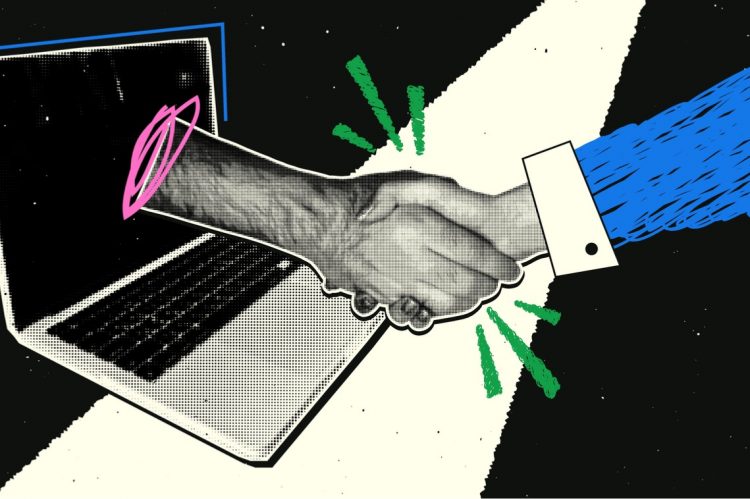At a speech this week on the potential impacts of AI on the financial markets, Michael Barr—the Fed’s current vice chair for supervision—spoke on the dangers of generative AI, but acknowledged both the opportunities and risks—and its potential to change productivity, labor markets and the economy.
Barr, who announced he would be stepping down from his key oversight role of vice chair shortly before the new presidential administration took over, was also pressed on efforts by Trump to end the Consumer Financial Protection Bureau (CFPB) and how privatization of the GSEs is seen by the Fed.
Speaking at an event hosted by the Council on Foreign Relations, Barr said financial institutions should invest resources in understanding AI technology, and the financial regulatory community should approach the “changing landscape with agility and flexibility.”
He further warned how industries should collaborate to ensure GenAI—a subset of artificial intelligence that uses generative models to produce text, images, videos or other forms of data—isn’t weaponized.
“Beyond the financial sector, collaboration between governments, private industry and research institutions will be critical to ensure that GenAI systems are not weaponized in catastrophic ways,” he said. “We should continue to focus on responsible AI research and development and implement safeguards against misuse, including monitoring systems, standards for secure AI system development and agreement on red lines for acceptable use cases.”
The very attributes that make AI attractive—speed, automaticity and the ability to optimize financial strategies—also present risk, said Barr.
AI simultaneously increases the ability of fraudsters and cyber attackers to infiltrate financial systems, and it is increasing the ability of banks to protect against infiltration against those attackers, said Barr.
“There’s going to be, kind of, an arms race about the use of AI—for good and for ill—in that space, so I do think that banks are and should be investing additional skills for their workers, additional (research and development) for the technology, as they are, to make sure that they stay current or, if they can, get ahead of that arms race. But it is happening, and it will happen.”
The full extent of AI and the changes it can bring are underappreciated, added Barr.
“AI is kind of overhyped right now—in the short term, I think people are expecting more from it last year than they are this year, next year—but I think probably underappreciated in the long term, in terms of the kinds of changes that it can cause in our society.”
Asked if the Federal Reserve uses AI, Barr said yes, but emphasized how cautious they are “with a very strong system of internal governance over it.”
“But we experiment with using it in a very controlled way. For example, we have a lot of coders at the Fed, because we run a payment system. We have thousands of engineers at the Federal Reserve, and one of the things, as you know, coders have to do is test their code; and the unit testing you do for code testing is pretty boring work and it takes a long time, so we’ve experimented with using generative AI, along with a human coder, to see if we can speed up that process—and yes, we could,” chuckled Barr. “Those are the kind of efficiency improvements that I think you’ll see more broadly in society.”
Pressing the issue of whether AI will replace jobs, moderator Andrew Ross Sorkin—a journalist with the New York Times and CNBC—asked Barr if the Fed will need, in the long-term, the several hundreds of economists employed at the agency.
“I think we might need more of them. The economy is super complicated. We use models today. A lot of what the Federal Reserve economists do is understand models, and we take those models as an input into a forecast, but the forecast involves a lot of human judgment,” Barr said. “We were just talking before about the uncertainty about policy—you have to make a decision on how much of that uncertainty builds into the forecast or not; human judgment is an important part of that.”
When asked about “the dismantling of the CFPB” by Sorkin, Barr said he was not worried.
“If you take a step back and look at the longer sweep of history, we have very strong institutions in the United States that have survived lots of different stresses to them over the sweep of our history,” Barr said. “We are an incredibly strong country, big-picture sense, and I’m not worried in that sense.”
When asked about what the privatization of government-sponsored enterprises (GSE) could look like, Barr refused to speculate, saying the Fed takes “the structure of the mortgage market as a given, as an input, as to how (the Fed) thinks about the economy and how (the Fed) thinks about capital rules and the like.”
Sorkin ended the talk by pressing Barr on whether he has any idea who the Fed’s next vice chair will be—someone who will potentially have significant power to oversee banks and regulate the financial world.
“It’s anybody’s guess,” said Barr.












